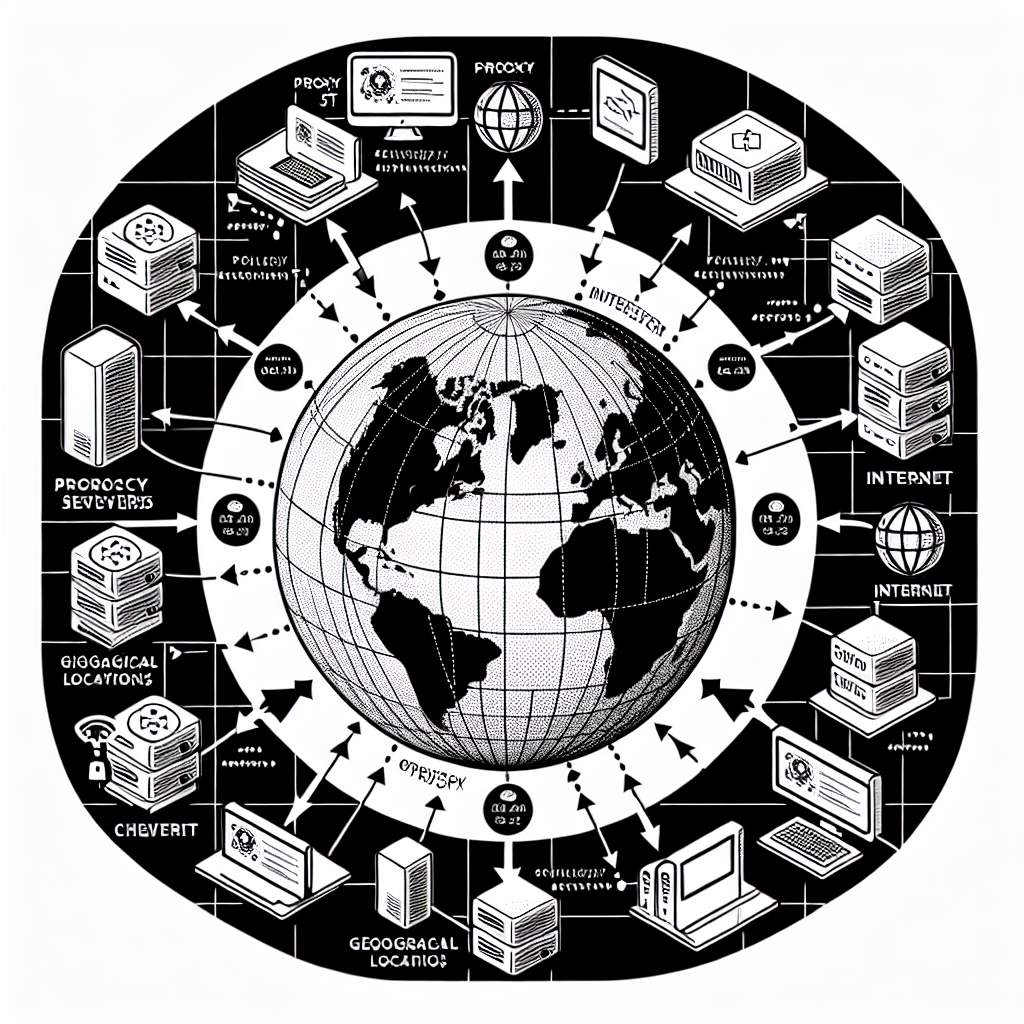In the vast expanse of the digital age, a peculiar phenomenon exists—a realm where your online identity can be cloaked, your location obscured, and your presence transformed. This enchanted world, where proxy servers reign as the unsung heroes of anonymity, intersects intriguingly with the concept of geolocation. So, dear reader, let us embark on a journey to demystify the geolocation of proxy servers and unveil its significance in the tapestry of the internet.
What is Geolocation of Proxy Servers?
Picture this: you are a traveler in a foreign land, holding a map that not only reveals the streets but also your exact location within that landscape. Geolocation, in the context of proxy servers, serves a similar purpose. It refers to the method of determining the physical location of a server based on its IP address. Each proxy server, much like a traveler with a passport, has an address that can hint at where it resides in the vast network of the internet.
When you connect to a proxy server, your internet traffic is rerouted through that server. The geolocation of the proxy server can influence how websites perceive your location. If you connect to a proxy server in France, for example, websites will think you are browsing from the charming streets of Paris, even if you are lounging on your couch halfway across the world.
How Does It Work?
The mechanics of geolocation are akin to a modern-day treasure hunt, where the treasure is the data that helps us understand where something is. Proxy servers work by using IP addresses, which are unique identifiers assigned to each device connected to the internet. These addresses can be mapped to specific geographical locations through databases that compile information about where various IP addresses are registered.
When you send a request to access a website through a proxy, that request first travels to the proxy server. The server then makes the request on your behalf, presenting its own IP address to the website. This sleight of hand allows you to appear as if you are accessing the web from the proxy's location. The magic lies in the proxy's geolocation—websites will respond to your request as if you were in that distant place, all thanks to the clever routing of your traffic.
Why Is It Important for Proxy Users?
In our interconnected world, the geolocation of proxy servers holds profound significance for users seeking privacy, access, or a dash of mischief. For instance, consider the traveler who wishes to indulge in a streaming service exclusive to a particular country. By utilizing a proxy server located in that country, they can bypass geographical restrictions, gaining access to content that would otherwise be locked away like a hidden treasure.
Moreover, businesses often turn to proxy servers for data collection, market research, or competitive analysis. Knowing the geolocation of a proxy allows them to simulate browsing from various locations, enabling them to gather insights that would be impossible from a single location. It’s like having a spy network, but instead of secrets, they gather data—only without the trench coats and dark sunglasses.
A Simple, Real-World Example
Imagine a young woman named Maria, an avid fan of international cinema. One sunny afternoon, she learns of a film festival in London showcasing her favorite director's work. However, the streaming service hosting the festival is geo-restricted to viewers in the UK. Undeterred, Maria decides to employ her trusty proxy server located in London.
With a few clicks, she connects to the proxy. As she navigates to the streaming site, she feels the thrill of adventure. To the website, it appears as though she is sitting in a cozy London café, sipping tea and eagerly awaiting her film. As the opening credits roll, Maria smiles, knowing she has danced around the digital barriers that sought to keep her from her beloved cinema.
In this tale, the geolocation of the proxy server transformed Maria’s experience, allowing her to engage with the world in ways that would have been locked away by invisible chains. And thus, dear reader, we see that the geolocation of proxy servers is not just a technical detail, but a key that unlocks doors to new realms of possibility in our digital lives.

Comments (0)
There are no comments here yet, you can be the first!